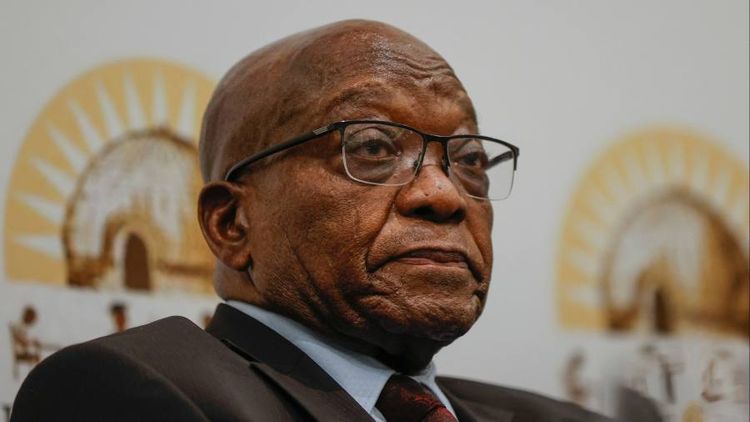South Africa's former president Jacob Zuma pardoned after 'special ...

Receive free South African politics updates
We’ll send you a myFT Daily Digest email rounding up the latest South African politics news every morning.
South Africa’s president Cyril Ramaphosa has approved a pardon for his predecessor Jacob Zuma as part of a “special remission” that also released thousands of other prisoners, the latest twist in a legal case that has tested the rule of law in Africa’s most industrialised economy.
The 81-year-old former president was handed a 15-month prison sentence in 2021 for defying an investigation into systematic corruption of state institutions during his rule, but was later released on medical grounds.
Zuma briefly returned to a prison in the state of KwaZulu-Natal on Friday but was released hours later under a scheme whereby Ramaphosa “approved the remission of non-violent offenders in South Africa”, the country’s department of correctional services said.
Ramaphosa granted the special remission pardon to almost 10,000 prisoners because of prison overcrowding, and the need to protect inmates from health risks and a “surge in gangsterism”, the department added.
But critics noted how the block pardon came just as South Africa’s prisons service was due to decide on whether Zuma should return to jail, after South Africa’s highest court last month upheld a ruling that the correctional department had wrongly granted him medical parole in 2021.
The Zuma sentencing saga has shone a light on the rule of law in South Africa and Ramaphosa’s promises to arrest the country’s decline after the rot known to South Africans as the years of “state capture”.
An inquiry into the scandal, in which the powerful Gupta business family was accused of using a friendship with the former president to loot the state, concluded last year that Zuma “readily opened the doors” to graft. Zuma and the Guptas deny any wrongdoing.
Opposition figures condemned the pardon for Zuma, and the unusual circumstances in which it was done. John Steenhuisen, Democratic Alliance leader, said Ramaphosa’s government had “once again weaseled out of standing up for the rule of law and the constitution, and chosen through a cynical and manipulative move to set Jacob Zuma free”.
However, Ronald Lamola, South Africa’s justice minister, said Ramaphosa “didn’t just wake up and take a decision”, and that the bulk pardon had been in the works since April.
South Africa’s constitutional court had originally found Zuma in contempt for defying its orders to appear before an inquiry into the looting of state resources during his nine years in power.
Last month’s decision meant that this sentence legally still stood but that the prisons service could decide whether his period of parole could count towards time served or whether he should be re-incarcerated.
Makgothi Thobakgale, head of the prison service, said Zuma’s brief return to prison on Friday meant that his department had complied with the court rulings and that granting of the pardon was a separate process.
Zuma surrendered himself to police in 2021 but his supporters unleashed South Africa’s worst ever bout of post-apartheid violence and unrest in response.
Looting and attacks on infrastructure in the heart of the South African economy in KwaZulu-Natal, Zuma’s power base, and Gauteng, the country’s industrial hub, killed more than 300 people and wrecked scores of businesses.
A military deployment eventually suppressed what Ramaphosa called an attempted insurrection. Zuma was paroled months later.
Zuma lost the presidency and a power battle in the ruling African National Congress as far back as 2018, but analysts have said that the ANC fears both a repeat of the July 2021 violence, which amounted to a civil war within the movement, and losing KwaZulu-Natal in national elections next year.
The party is facing a battle to retain the majority it has held since the first democratic elections in 1994 and polls have indicated that it could lose the significant population centres of both KwaZulu-Natal and Gauteng.
Over the years South African presidents have occasionally used powers under the country’s constitution to remit sentences, including Ramaphosa previously in 2019 and Zuma in 2012.









































